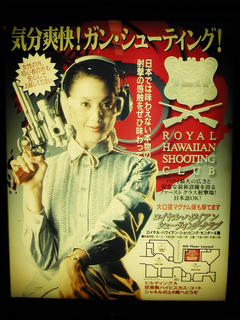 The rational consumer
The rational consumerWhen I was at college I did economics modules. The hypothetic models build by economists assumed that consumers made rational choices all the time. This was a marketing degree and the consumer behaviour aspect of the course dispelled this assumption. However, according to Trendwatching.com this economist view of the world may not be too far off at all.
Hygienia is a modern marketplace of mature consumers who know where what all the hygiene factors are for any good or service that they purchase. This tends towards what economists call 'perfect market knowledge' since if you can categorise the key attributes you can make a rational design based on price.
Consumers are able to cut a swath through corporate and marketing messages to get to the information that matters to their buying decision. In a way that was promised with Wired magazine's vision of the new economy, the internet has improved consumer knowledge and research. For instance gamers know that the likely European-specification Sony PSP is likely to have region-locked games and an inferior quality screen compared to the Japanese products so are using the web to buy parallel imports faster than Sony can close down their lines of supply.
Successful products and services fit into a continuum consisting of six different categories:
- Free love - cheap to free - most of the web including Wikapedia or the Metro newspaper. The business problem this presents is when consumers become used to getting something for free how do you get them unwillingly to use a paid-for item? One of the few successes in this area would the iTunes Music Store, the New York Times Online is trying to square this circle now.
- Cheap heaps - lowest of the low pricing - easyGroup products, Lidl, Aldi. Offerings based on discounts that are too good to be true
- No Frills Chic - cheap but well designed - IKEA, H&M. Think cheap heaps with style and or humour.
- Mass class - the new standard, based on products that would have been considered luxury such as Starbucks coffee, Ben & Jerry's ice cream. Whilst many brands believe this is where they sit, they often don't add up on the hygiene factors.
- Massclusivity - the new standard for mass luxury such as adidas limited editions or personalised items like Warholised baby photos that seem to be popular with yummy mummies
- Uber premium - Seriously rich products - Maybach limosine, a corporate charter jet and Audemars Paget watches